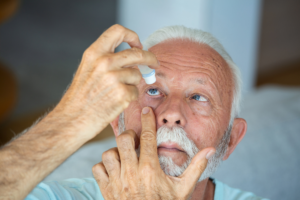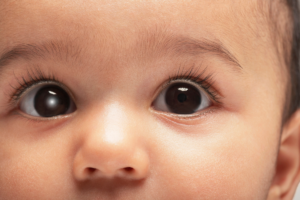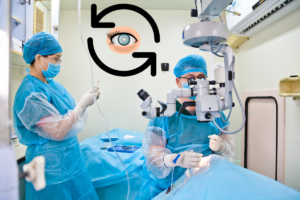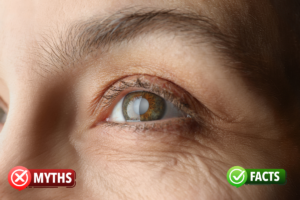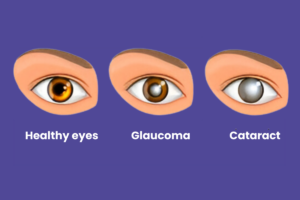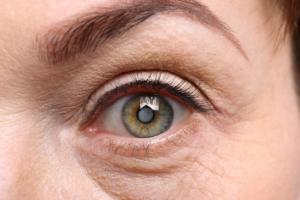Do’s and Don’ts after cataract surgery

Cataract surgery is a routine and effective procedure that can restore your vision and improve your quality of life. However, the recovery period is crucial to ensure the best results and prevent complications. This guide will walk you through the do’s and don’ts you should follow after cataract surgery, ensuring that you take the right steps towards recovery.
Do’s after cataract surgery
1. Follow your doctor's instructions

The most important step in your recovery is to follow the instructions given by your ophthalmologist. Your doctor will provide specific guidance regarding eye care, medication, and follow-up appointments. Adhering to these instructions will significantly enhance your healing process and reduce the risk of complications. Do not hesitate to reach out if you have any doubts or questions.
2. Use the prescribed eye drops regularly

After cataract surgery, you will likely be prescribed antibiotic and anti-inflammatory eye drops. These medications are designed to prevent infection, reduce inflammation, and promote healing. Be consistent and take your drops on time to avoid delays in recovery. Skipping doses could lead to complications such as infection or swelling, so make it a point to follow your doctor’s prescribed regimen closely.
3. Protect your eye with an eye shield
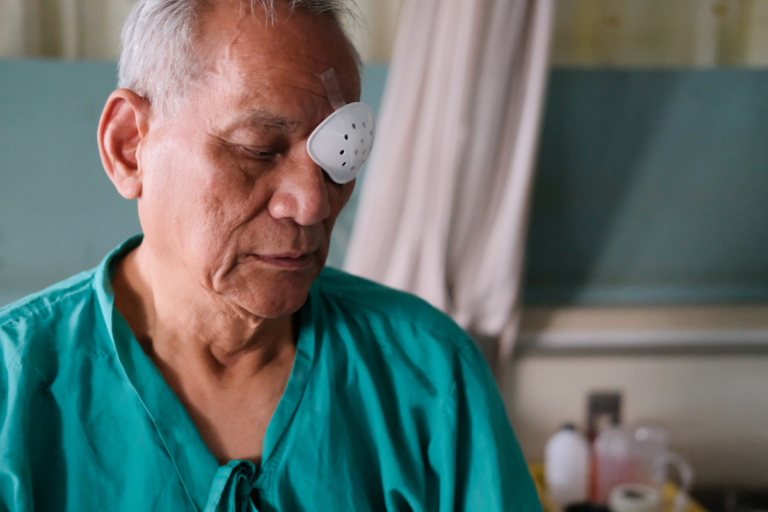
In the days following your cataract surgery, your eye will be healing and should be protected from external irritation. You will be given an eye shield or patch to wear, especially during sleep. The shield prevents accidental rubbing or pressure on the eye, which could interfere with healing. It also reduces the risk of infection by keeping the area covered and clean. Wear it as instructed, even if it feels comfortable to leave it off.
4. Rest and allow your eye to heal

Cataract surgery is a relatively simple and quick procedure, but healing takes time. It’s important to rest and give your eye the necessary time to recover. While you can perform light activities such as watching TV or reading, try to avoid activities that strain your eye, like reading in poor lighting or staring at a screen for long periods. Adequate rest also supports overall recovery and helps you regain full vision.
5. Use lubricating eye drops for dryness

Dry eyes are common after cataract surgery. Your ophthalmologist may recommend lubricating drops to alleviate discomfort caused by dryness or irritation. Lubricating eye drops help to keep your eye surface moist and improve comfort during the healing process. Make sure to use preservative-free eye drops as recommended, and avoid using any other types of drops without consulting your doctor.
6. Wear sunglasses outdoors

Your eyes may become more sensitive to light (photophobia) after cataract surgery. Sunglasses are a simple and effective way to protect your eyes from bright light and UV rays. Wearing sunglasses also reduces glare and makes it more comfortable to be outdoors. Ensure that the sunglasses provide 100% UV protection to shield your eyes from harmful rays.
7. Attend your follow-up appointments

It’s essential to attend all your scheduled follow-up appointments with your ophthalmologist. These visits allow the doctor to monitor your recovery, check for any signs of infection or complications, and ensure that your eye is healing properly. Follow-up appointments typically take place within the first week after surgery, and you may have additional visits in the following months.
8. Keep your environment clean

A clean environment reduces the risk of infection. Dust, smoke, or dirt in the air can irritate the eyes and increase the likelihood of post-surgical complications. Avoid exposure to polluted or smoky environments, and maintain a clean home. When washing your face or hair, be careful not to let water enter your eye.
9. Eat a healthy diet & stay hydrated

Nutrition plays a key role in supporting the body’s healing process. Eating a balanced diet rich in fruits, vegetables, and omega-3 fatty acids can help promote eye health. Staying hydrated is also essential for overall recovery. Drinking plenty of water will help keep your eyes moist and minimize dryness.
Don’ts after cataract surgery
1. Don’t rub or touch your eye

One of the most important rules after cataract surgery is to avoid rubbing or touching your eye. The surgical site will be tender and sensitive, and any pressure could cause irritation or damage to the newly implanted lens. If you feel any discomfort, talk to your doctor, but refrain from rubbing your eye.
2. Don’t engage in strenuous activities

Avoid strenuous physical activities such as heavy lifting, intense exercise, and vigorous sports for at least 4-6 weeks after surgery. Strenuous activities can increase pressure in your eye, which may lead to complications. Activities like jogging, weightlifting, or bending over should be avoided. Once your doctor gives you the green light, you can resume your normal activities.
3. Don’t swim or expose your eye to water

Water can contain bacteria that may lead to infections, so it’s important to avoid swimming in pools, hot tubs, or any bodies of water for at least 2-3 weeks after cataract surgery. If you need to wash your face or hair, be very careful not to splash water into your eye. Protect your eyes from water during showering by using an eye shield or by tilting your head back.
4. Don’t drive immediately after surgery

After cataract surgery, your vision might be blurry for the first few days as your eye heals. Do not drive until your doctor confirms that your vision is clear and safe for driving. This typically happens within a few days to a week, but it’s important not to rush. If your vision is still blurry or you feel unsure about driving, ask someone else to take you to your follow-up appointments.
5. Don’t wear makeup

For the first 1-2 weeks after surgery, avoid applying eye makeup such as mascara, eyeliner, and eyeshadow. Makeup particles can introduce bacteria into the eye and increase the risk of infection. You can gradually reintroduce makeup once your eye has fully healed, but until then, it’s best to stay makeup-free around the eyes.
6. Don’t expose your eyes to smoke or dust

Smoke and dust can cause irritation and affect the healing process after cataract surgery. Avoid smoky environments, such as places where people are smoking, and try to stay away from dusty areas. Exposure to these irritants can cause discomfort and delay recovery, so take extra care to protect your eyes during the healing period.
7. Don’t skip your prescribed eye drops

Skipping prescribed eye drops can slow the healing process and increase the risk of infection or inflammation. It’s essential to follow your doctor’s prescribed regimen for eye drops and medications. Even if you feel no discomfort, continue using the drops as directed. If you have trouble remembering, set reminders on your phone or keep the drops visible.
8. Don’t ignore unusual symptoms
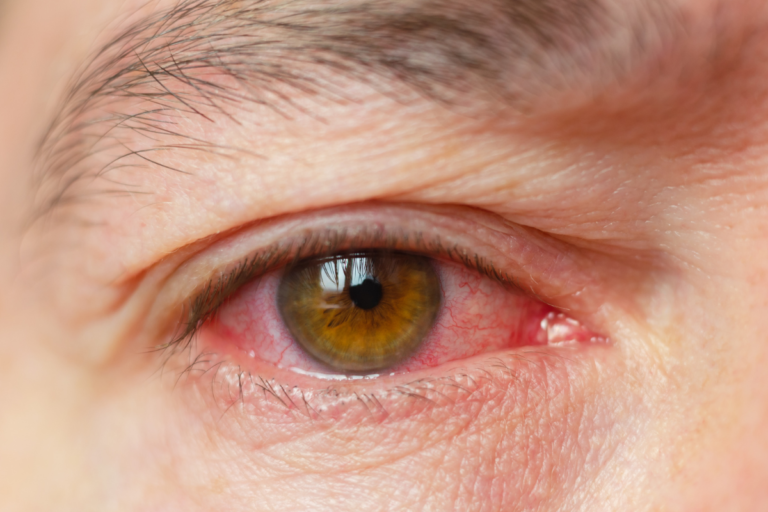
If you experience severe pain, persistent redness, or vision loss after cataract surgery, contact your ophthalmologist immediately. These could be signs of complications such as infection, bleeding, or increased eye pressure. Timely intervention can often prevent long-term problems, so never ignore unusual symptoms.
9. Don’t drink alcohol excessively

Excessive alcohol consumption can interfere with your healing process, especially if combined with pain relievers or antibiotics prescribed after surgery. Avoid drinking alcohol for the first few weeks after cataract surgery. If you wish to have a drink, discuss it with your doctor, but it’s generally advisable to limit alcohol intake during recovery.
10. Don’t expose your eye to trauma

After surgery, your eye is more vulnerable to injury. Avoid physical activities that could lead to accidental trauma, such as contact sports or activities involving flying objects (e.g., racquetball, soccer). Protective eyewear may be necessary for some activities after full recovery.
Conclusion
By following these do’s and don’ts after cataract surgery, you will be setting yourself up for a successful recovery and optimal results. At Krisha Eye Hospital, we’re here to support you at every step of your recovery journey. If you experience any discomfort or have concerns, don’t hesitate to contact us. A little care and attention after surgery can go a long way in helping you achieve clear and lasting vision.
Author bio
Dr. Dhwani Maheshwari, an esteemed ophthalmologist with over 10 years of experience, leads Krisha Eye hospital in Ahmedabad with a commitment to advanced, patient-centered eye care. Specializing in cataract and refractive surgery, Dr. Maheshwari has performed more than a thousand successful surgeries. Her expertise lies in phacoemulsification, a technique recognized for its precision in cataract treatment.
Dr. Maheshwari’s educational journey includes an MBBS from Smt. NHL MMC, a DOMS from M & J Institute of Ophthalmology, and a DNB in Ophthalmology from Mahatme Eye Bank Eye Hospital, Nagpur. She also completed a fellowship in phacoemulsification at Porecha Blindness Trust Hospital, further enhancing her surgical skills. In addition to her work at Krisha Eye Hospital, Dr. Maheshwari serves as a consultant ophthalmologist at Northstar Diagnostic Centre.
Under her leadership, Krisha Eye Hospital aims to bring all superspecialties under one roof, offering comprehensive eye care solutions for all vision needs.
FAQs
Most people experience a significant improvement in vision within the first few days to a week after cataract surgery. However, the complete healing process may take around 4-6 weeks, depending on individual health factors and how well the eye is healing. You can learn more about the recovery timeline in our detailed guide.
Many patients can return to non-strenuous work within 2-3 days. However, if your job requires heavy lifting, intense concentration, or physical exertion, it’s better to wait until after your follow-up appointment, typically around 1-2 weeks.
Yes, it is common to experience blurry or fluctuating vision in the first few days after surgery as your eye adjusts. If the blurriness persists or worsens, contact your doctor to ensure there are no complications.
In most cases, contact lenses are not necessary after cataract surgery, especially if a refractive lens implant (IOL) was used during the procedure. Your doctor will guide you on whether or not contact lenses are appropriate based on your recovery and needs.
If you experience severe pain, unusual redness, or vision loss, it is crucial to seek medical attention immediately. These may be signs of infection, increased pressure, or other complications that require prompt treatment.
Moderate screen time is usually okay, but it’s recommended to avoid long periods of staring at a screen in the initial days. Excessive use may cause eye strain or discomfort. Make sure to take regular breaks.
Some people may still need glasses for reading or for tasks that require clear vision at certain distances, even after cataract surgery. Your ophthalmologist will discuss your options, including types of lenses like multifocal or monofocal IOLs.
It’s advisable to avoid putting pressure on the operated eye by sleeping on that side during the first few weeks. You should sleep on your back or the unoperated side until your doctor gives you the all-clear.
You should not drive until your eye has healed sufficiently and your doctor confirms that your vision is clear and safe for driving. This typically occurs within a week, but it varies by individual.




